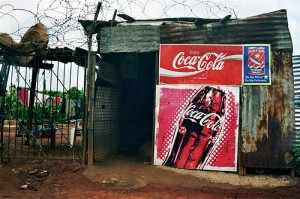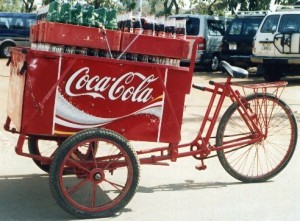The previous post talks about how Coca Cola localizes their market campaign and make people feel happy when drinking a Coke. Back to NGOs, in contrast, they made a false assumption of people “should” want health development, which leads to ignorance of making people “want” in health development. Often times, NGOs promotions only focus on avoidance, for example “use condom, don’t get AIDS”. However, in the real world, people living in remote place are lack of the knowledge about either the sanitation or the implementations on health development.
It is ironic that the locals use new-build public washrooms as storage and even hen-houses, simply because they don’t know how to use the toilets. Apparently, the large amount money NGOs spent brings little payback. Like it said in class, I think health care service is right now in the “introduction stage” in the Product Life Cycle. NGOs need to take initiatives to educate the public about their “products” and demonstrate the “benefits”, not only just “features” to the local communities. In this particular case, NGOs can explain the reasons behind using public toilet in avoidance of disease (benefit) and get local communities use the toilet.
Through people’s learning process regards to health development, their attitudes and perceptions will be affected followed by a change of thought process, and eventually they will seek satisfaction of sanitation by using public washrooms.
Coca Cola’s success also benefits from tapping into local entrepreneurial talents. After the company found the abundant keen locals trying to set up businesses, it starts to target at B2B business with local resellers to reach the rural market. In the B2B interactions, Coke motivates and trains them, and in turn, the businessmen help to deliver the value of the products to local consumers: transporting Coke into interior villages via hand carts, while making coke available in every remote places.
In addition to make people “want” clean water and sanitation, NGOs can also learn from Coke of using local support. I think the local business can not only promote the health care services which increase the public awareness, but also distribute the services that ensure they are available at right places and proper time. In short, If social enterprises are able to unlock the potential of the community, the problems will be solved with a long lasting social impact.
Marketing is indeed around us; it not only changes people’s lifestyle, but also, saves people’s lives. I believe if the NGOs are succeed in marketing the health care products, the chance of failure will be little.
Resource:
http://www.worldchanging.com/archives/008319.html

